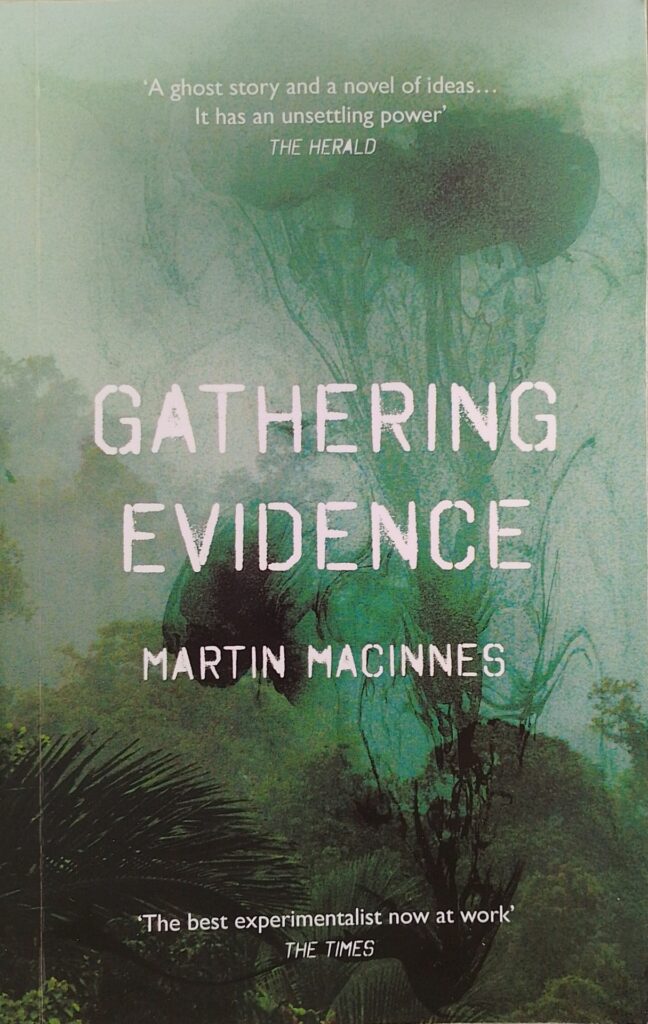First published 2020. Atlantic Books paperback, 2021, pp313, c.70,000 words.
This is a Scott of the Antarctic or a Titanic of a book: a magnificent try in so many ways, but ultimately a failure. I had high hope for it as the predecessor of MacInnes’s superb In Ascension, but the later coheres where this does not, although it does share the same literary style. However, this book has almost no plot and very little character development. It is big on atmosphere – essentially ghostly, where unseen threats abound. It is a nightmare world, close to horror, and entirely ambiguous and inconclusive; as such it is masterly.
The opening is a disaster. After a couple of pages I found myself flicking forward to see how much more of this tosh I had to put up with: twenty pages unfortunately. MacInnes should have followed Chekov’s suggestion and cut it out. It adds nothing to the story, not being mentioned again. I’m not that interested in a description of an invented, rather silly app that seems to be the cross between a health tracker and a Tamagotchi. These twenty pages say nothing and prefigure nothing about setting, character or plot.
Once one has struggled past that the story begins. It concerns a young couple, Shel, a zoologist and John, a computer programmer. Neither are particularly appealing, being wrapped up in themselves. She has been asked to join a scientific trip to investigate the status of a group of Bonobos that live in an African national park. Two of the animals have mysteriously died. The park is gradually being diminished as a mining company, which seems to control the country, gradually eats it away. Setting up a mining company as the bad guy is rather obvious, but to be fair, we are all made to be complicit by our demand for the electronics made possible by the output from the mine.
John visits the site of the house that he and Shel are having built in Britain, mostly below ground for some unstated reason. He suffers an accident or attack, and wakes up back at home suffering from a mysterious condition while a fog has descended, cutting off the world.
The spooky, other-worldly atmospheres, both in the jungle park and at John’s house, are well sustained: we never get to learn if characters are hallucinating, either self-consciously or maliciously imbibing drugs, or simply wrapped up in their own fears. Reality and common sense seems to have evaporated.
MacInnes is often a very fine writer. He is a master of ambiguity, and often humorously perceptive. For example: ‘In someways it would be much easier for the authorities to set up tours relating to the species if it was no longer present’ [p37], ‘It was as if product design exploited latent religiosity, a nostalgia for the belief that people too existed free from bodies’ [p49], and ‘I had begun to talk in an overly enthusiastic, automatic way, and I knew I would regret it if I continued, knew I would wake early and restlessly hunt my displays of stupidity’ [p95]. Unfortunately he also seems to be attempting to out-do Proust with some of his sentences: p98-99 has a 200-word example, with 24 comms and one dash, p209/210 – 187 words, 34 commas, one dash, and the real monster on p278-280 with about 644 words, but that one is at least broken up with 14 semi-colons. There are probably other absurdities. It is as though MacInnes had set off and then forgot what the purpose of the sentence was, and noodled around aimlessly.
One for those fond of high-ambiguity, horrific ghost stories.
Wikipedia biography of MacInnes: https://en.wikipedia.org/wiki/Martin_MacInnes
Others’ reviews of the book: https://www.goodreads.com/book/show/48508077-gathering-evidence?ref=nav_sb_ss_2_18
© William John Graham, June 2024

